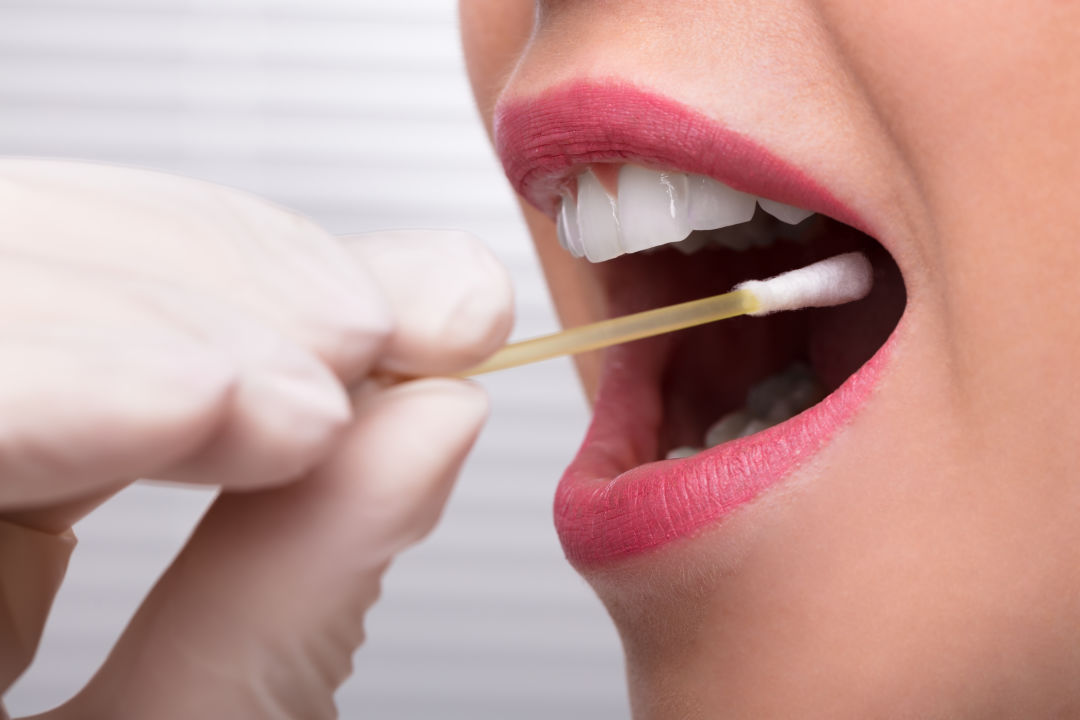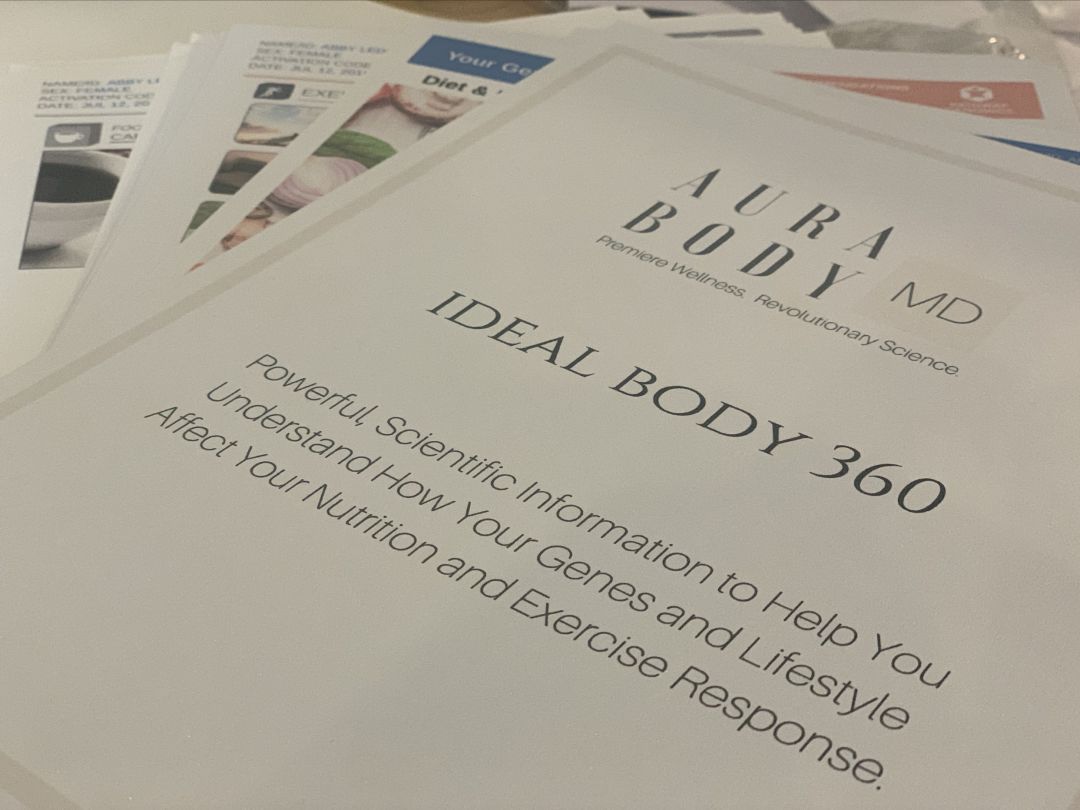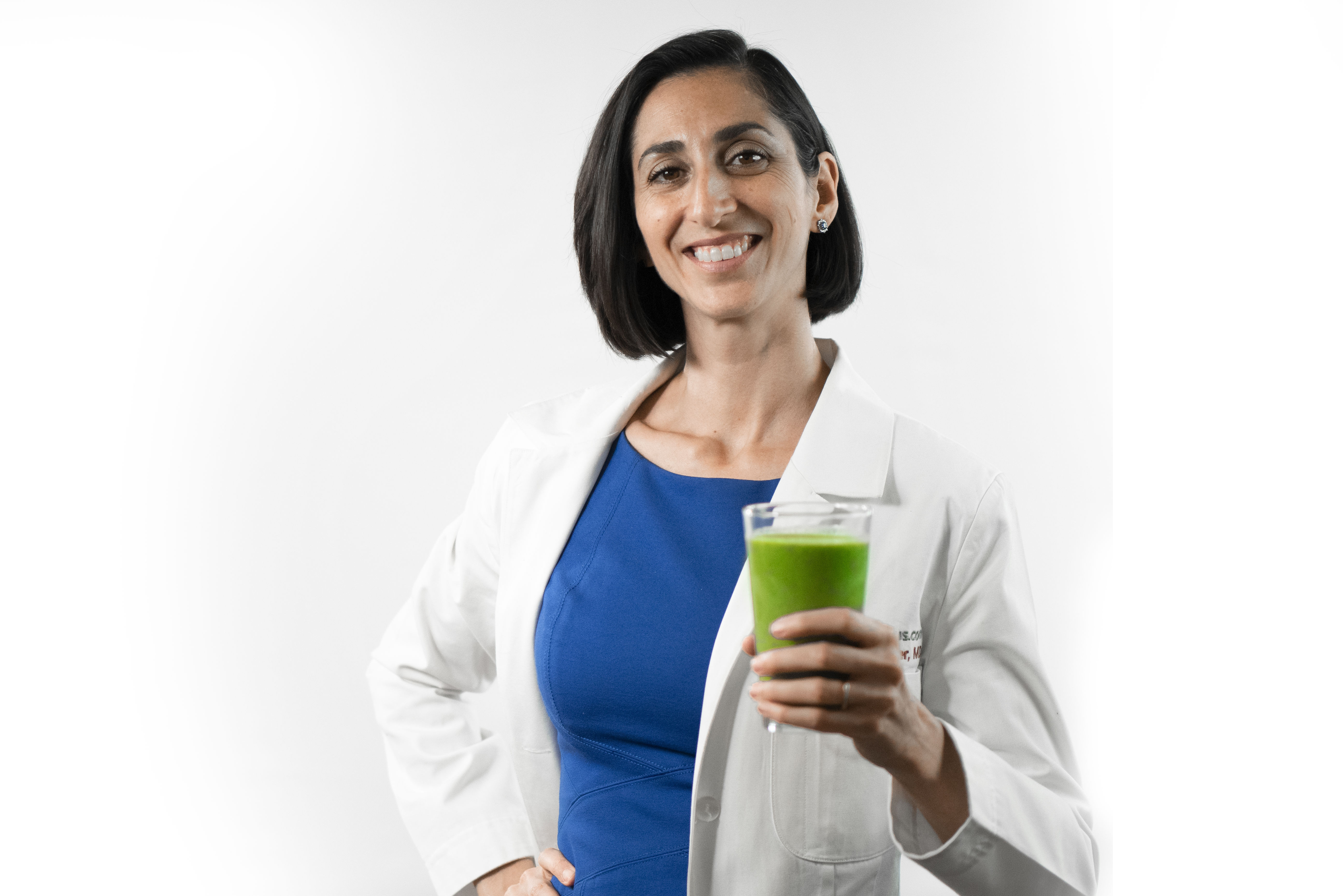Can Genetic Testing Actually Help You Get Fit?

Ever wonder why you struggle to build muscle, never feel full, or just can’t kick a stubborn sweet tooth? The answer may lie in your spit.
Sure, your DNA shows you’re likely descended from Vikings, but what about how your body processes sugar? Today, genetic testing does a lot more than tell you where your ancestors came from, and med spas and start-ups alike are harnessing the power of the cheek swab to provide ultra-specific, personalized intel on diet and exercise efficacy, too.
Enter Aura MD Body, the Spring Branch-area practice where Dr. Ashley Toutounchi has embraced the latest trend in science-based wellness with a genetic fitness testing program called Ideal Body 360. For around $500, the program measures a slew of genes related to diet, exercise, metabolism, weight, and nutritional needs to eventually help clients build personalized wellness regimes that are more likely to work for their bodies. DNA from a standard cheek swab is sent to San Diego-based lab Pathway Genomics, which spits back (pun intended) a 49-page report in four to six weeks.
"This is a great way to give you a snapshot of your fitness and what your chances are of getting the best results from diets and exercise," Dr. Toutounchi says.
Indeed, Aura MD’s test analyzes 71 genetic markers for diet alone, which could shed some light on why some of us can devour an entire Cheesecake Factory bread basket with zero consequences while others can’t so much as look at a carb without having to unbutton our skinny jeans.
We all know one-size-fits-all diets are totally hit or miss, but the key lies in determining which is which. The science works like this: Certain genes can predict your body’s behavior, like whether it’s resistant to insulin—meaning you may find more success with a low-carb diet—or if it’s apt to properly respond to different types of fat, for instance. Elsewhere in the genome, biomarkers can indicate possible predisposition to high cholesterol, obesity, and even satiation—i.e., how full you feel (or don’t) after eating. The test measures vitamin and nutrient deficiencies, too, which might suggest you up your OJ intake or even take supplements.
But does it actually work?

Image: Abby Ledoux
Reviews are decidedly mixed, and science is just as varied on the subject—in 2014, the Academy of Nutrition and Dietetics released an official position on the concept, concluding that DNA does tell us something about our nutritional tendencies, but that it’s just too soon to say if that something can be properly measured and analyzed by industry professionals, especially nutritionists who aren’t thoroughly trained in the complex field of genomics. Besides, while the presence of a certain gene or a mutation on another might suggest one thing, it’s usually never the entire story. Someone can genetically appear like they’re highly susceptible to a chronic illness such as heart disease and never actually develop it. There are other considerations, like family history and lifestyle-related risk factors, that can play an equal if not larger role in the equation.
Dr. Toutounchi emphasized that point when I got my own results back last month. Take, for instance, one of my genetic markers associated with lactose intolerance. "Do you have issues with milk or dairy?" she asked. My nightly ritual—a bowl of Neapolitan ice cream—would suggest I, in fact, do not. "Interesting," she said. "It just means, genetically, you're more prone to it, so I'd keep an eye out for it. But if you don't notice anything specific, it's not like it's saying you're lactose intolerant."
The same applied to my predisposition for various vitamin deficiencies. The test didn't monitor my actual nutrient levels, of course, but it detected "certain genes that make you more prone to not ideally absorbing them," Dr. Toutounchi noted, and something to keep an eye on.
Some results I could already vouch for, like the fact that I'm prone to rapidly metabolizing caffeine."I'm assuming caffeine doesn't really affect you much," Dr. Toutounchi said. Correct. "You run through those lattes." I agreed, happy to have science on my side the next time I'm forced to defend my morning Red Bull and afternoon Dunkin.
The presence of other markers were less welcome news: Evidently, I have an above-average predisposition to obesity, I'm genetically more likely to gain weight back after losing it, and I'm prone to "eating disinhibition," or binging on tempting foods even after I'm full. "This is just something to keep in mind," Dr. Toutounchi emphasized. "It's just saying to watch it."
To that end, Ideal Body 360 offers some ideas. The labs concluded my genetics are associated with enhanced health benefits from endurance exercise (meaning I can continue to prioritize spinning over weight-lifting), and I matched to the coveted "balanced" diet type—as opposed to, say, low-carb (thank God)—which equates to roughly 20 percent lean protein, 25 percent healthy fat, and 55 percent complex carbs. Suggested meal plans broke it down even further, with guidelines (and recipes) for 1,200, 1,500, and 2,000 calories a day.
And if I had any doubts about the efficacy of the science, a little factoid on page 32 stopped me in my tracks. "INJURY-PRONE: Your genotype is associated with an increased likelihood of Achilles tendinopathy," it read. While most people haven't even heard of the affliction—Dr. Toutounchi confirmed I was the first patient she could remember to have that biomarker show up in a report—I am acutely aware of it, as it's plagued my mother for years and has dramatically reduced her ability to walk. A study of people with my genotype—G/G—showed a 2.5 times higher chance of developing Achilles tendinopathy.
Coupled with the rapid caffeine metabolism, that was all the confirmation I needed.
Is it a magic cure-all, a step-by-step plan to achieving guaranteed results in diet and exercise? Decidedly not. But someone truly dedicated to improving their wellness, be it by trying more cardio or eating more omega-rich foods, could take their DNA results and run with them. As with most things in life, it all comes down to good judgment.




